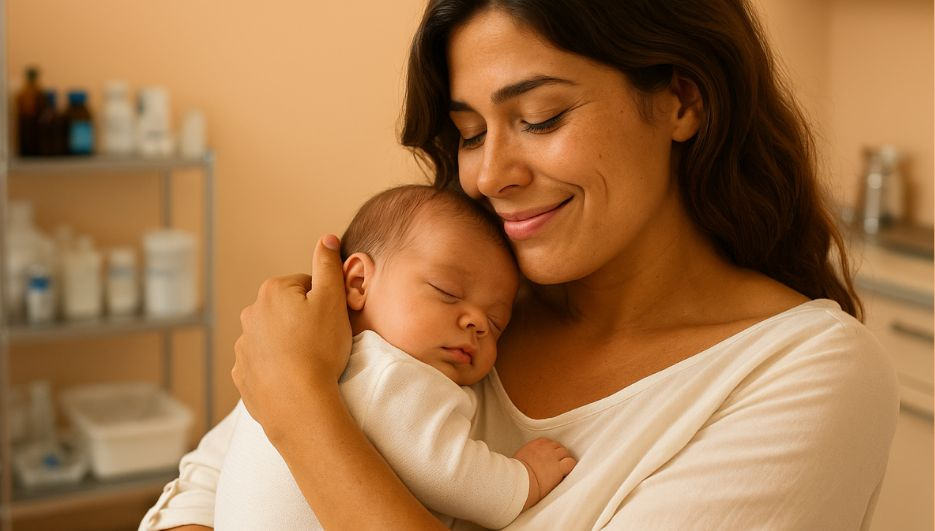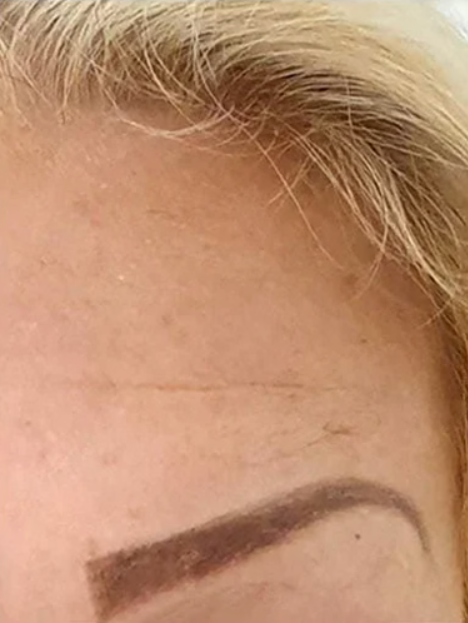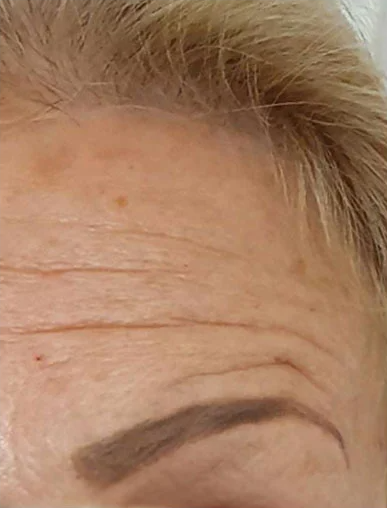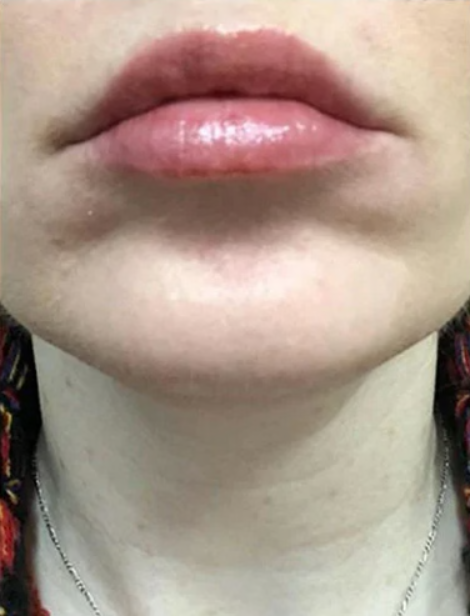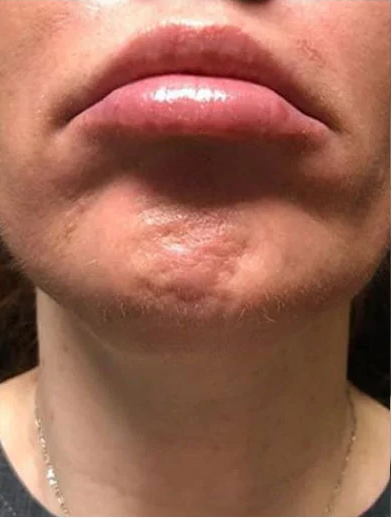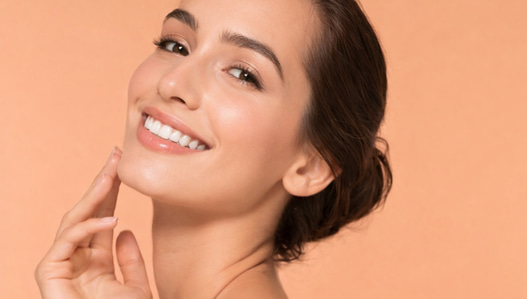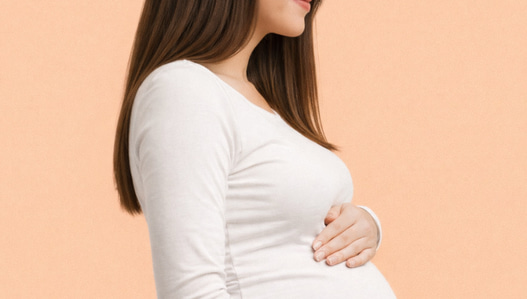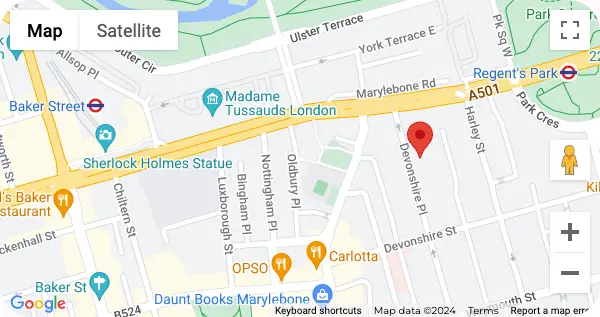Whilst the little evidence we have supports no great risk, clinical trial and longer term data is lacking. Therefore I recommend all of our patients to stop breastfeeding before resuming/starting Botox injections.
Dr Aamer Khan
MSC, CHD, MSBC
GMC: 3128431
Introduction
You just gave birth to a beautiful baby, you are tired and maybe no longer feel quite like your golden self in the mirror, so you are considering a little Botox to look refreshed. A lot of new mums ask whether or not it is safe to have Botox while breastfeeding, and the answer is not entirely black and white. Getting Botox injection is a personal decision at the end of the day. The best you can do is have an open conversation with your provider, considering the minimal potential risks against your own comfort and needs when discussing your medication options.
In this guide, we will take you through what the research says, what experts recommend and what safer options are available while you are nursing.
Key Takeaways:
- There is little evidence that Botox while breastfeeding is harmful, but also limited research.
- Experts advise to wait for weaning before Botox, for precaution.
- It’s unlikely Botox gets into breast milk in meaningful quantities.
- There are also alternative non-invasive cosmetic procedures for nursing mothers.
- Already had Botox? Do not panic, but talk to your GP.
How does Botox work?
Botox (Botulinum toxin type A) is a type of purified protein that temporarily relaxes the muscles responsible for wrinkles. It is most often used on the forehead, around the eyes (crow’s feet) and between the brows. Botox, by inhibiting muscle movement, softens the skin and prevents deep lines from developing.
Read our full blog: Botox London
Botox and breastfeeding, is it safe?
Botox is derived from a purified botulinum toxin type A that causes botulism in its natural form. But the form used in beauty and medical treatments can be totally safe if used properly. It does not have live bacteria nor spores, and is administered in tiny, precise quantities.
Some breastfeeding moms may be concerned with safety, but small amounts may be ingested from breastfeeding, although it is unlikely that Botulinum toxin gets into breast milk and poses a risk to a breastfed infant. In reality, not even in rare instances of true botulism in mothers has any toxin been detected in their milk, and their infants were well.
Infant botulism, meanwhile, results from swallowing spores, usually from honey, which is why babies under 1 should not eat it. But that is a different risk than Botulinum toxin injections.
Research about getting Botox during breastfeeding
A 2024 study by Hudson and others included four women who had had cosmetic Botox. None of them had any detectable botulinum toxin in their breast milk samples. The other two displayed tiny amounts, for less than 0.085 and 0.747 ng/mL.
In an additional study from 2025, Gu and colleagues measured three additional breastfeeding mothers who had 64 units of Botox injected. The highest amount discovered in their milk was only 0.167 ng/mL, while some tests found no Botox at all.
Significantly less Botox was discovered in milk than the dose that was administered, indicating that very little, if any, makes its way into breast milk after treatment.
Even if trace amounts do find their way into milk, it is probably not going to harm your baby. When swallowed, Botox is broken down in the stomach and does not pass readily into the bloodstream. Unsafe doses are much larger than those discovered in these studies.
To date, plenty of breastfeeding women have had Botox with no reported side effects in their babies. And while more studies can never hurt, existing evidence suggests the risk is very low. And do not forget to consult your healthcare provider first, before deciding what is right for you.
Effective & professional doctor-led Botox at our central London clinic
Verified Before & After
Verified Before & After
What the NHS says
As yet, the NHS has not published any official guidance on Botox and breastfeeding. However, the majority of UK health services are advising not to due to no studies published about taking it right now.
What about non-cosmetic Botox?
Botox is also sometimes used as a treatment for certain medical problems including chronic migraines, excessive sweating, and TMJ disorders. If you are undergoing Botulinum toxin injections for a health issue, talk with the specialist, the benefits are likely to outweigh the risks.
Does Botox get absorbed into the bloodstream?
Very little Botox makes its way into the bloodstream when it is injected correctly. As a rule, its action is mainly confined to within the injection site. However, trace amounts can circulate as well, potentially if very large doses are given or if the intramuscular injection itself is not quite right.
Does Botox affect your breast milk?
At present, there is little to no evidence that Botox will affect the breast milk in any substantial manner. But because infants are more sensitive to toxins, many experts recommend waiting until you are no longer nursing.
Can breastfeeding interfere with your treatment results?
Not directly. Yet the hormonal effects of childbirth can affect how your skin responds to treatments such as Botox. You may notice your results are not quite the same as they were before pregnancy, which is perfectly fine.
Alternatives to Botox to consider while you’re nursing
If you are looking for ways to rejuvenate your appearance without the option of using Botox while nursing, there are plenty of alternatives to skin friendly medical procedures:
- Microneedling: This involves encouraging collagen without the use of injections in the body.
- HydraFacial: A non-aggressive deep cleansing facial that helps brighten and exfoliate the skin.
- Chemical peels: Chemically removes the top layer of skin for facial rejuvenation.
- Microdermabrasion: A device with a diamond tip or crystals exfoliates the skin.
Can I get fillers while breastfeeding?
Dermal fillers have not been put through extensive testing during breastfeeding, any more than Botox has. Most clinics recommend against it until after you are no longer nursing.
I had Botox while breastfeeding: What should I do?
If you have already had Botox prior to hearing about these possible risks, do not panic. The chances of your baby being affected are really low. But it is always better to get peace of mind from your GP or a dermatologist in case of needing immediate medical attention.
In most cases we see, the risk is very low, but it is a good idea to stay informed and check in with us if you’re not sure.
FAQs about getting Botox while breastfeeding
- How soon can I breastfeed again after getting Botox treatments?
There is no official guideline, but most doctors advise waiting at least 24 to 48 hours to eliminate a theoretical risk.
- Can you get Botox while pregnant?
No, Botox injections are not advised in pregnancy because of its potential risks.
- If I’m not breastfeeding, how soon after giving birth can I get Botox?
You can go back to getting Botox treatments once you have recovered from delivery and are no longer breastfeeding. The majority of women wait until their six week postnatal check-up to discuss it with their doctor.
Reserve a botox appointment
One of our experts will be more than happy to answer any questions you have.
Book AppointmentWP L
★★★★★
I had a wonderful experience from the moment I walked in! The receptionist was incredibly warm and friendly, and the doctor was exceptionally professional and made me feel completely at ease.
13th February 2026
Mali
★★★★★
Amazing clinic, always so accommodating, always thrilled with the results. Been attending this clinic for years and it’s definitely one of the best in the Harley Street area!
14th February 2026
Luísa Moura
★★★★★
Had the Morpheus treatment with Rose, she was very kind and explained everything in detail. I highly recommend the clinic and her services.
13th February 2026



